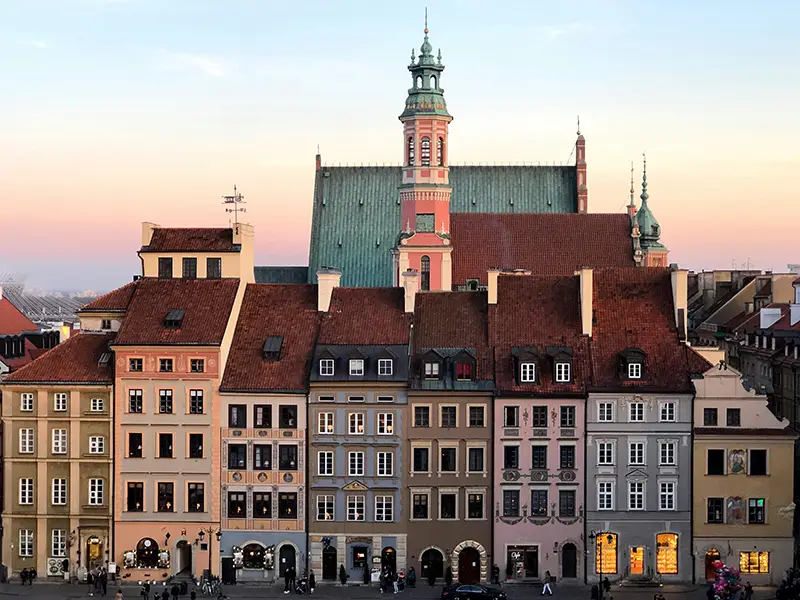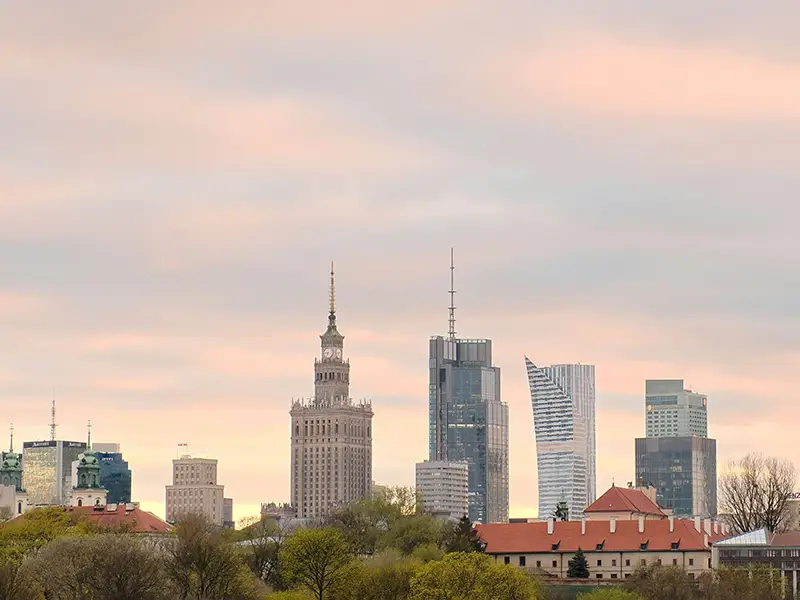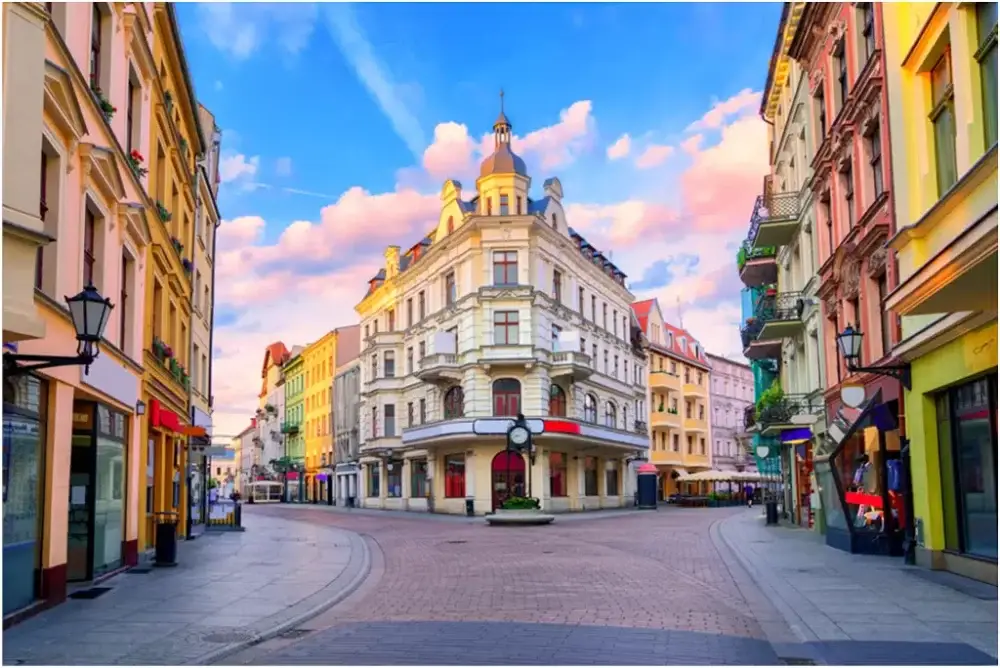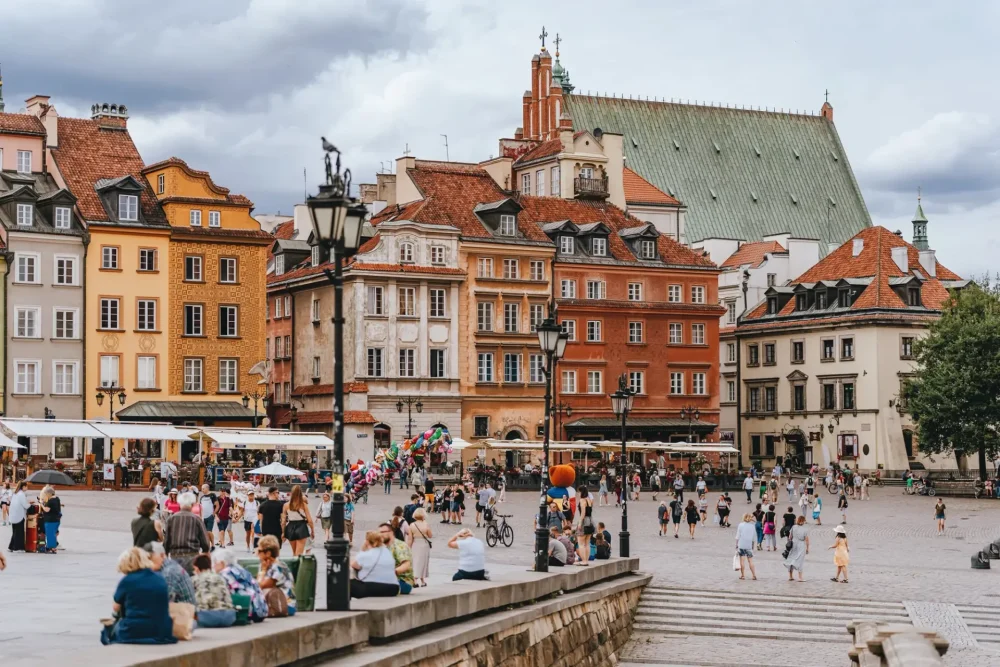It is impossible not to notice how the property market in Poland is booming – attractive conditions for buying a home, a stable economy and a high standard of living make the country a real boon for investors. It offers the opportunity to invest in the future with confidence and significantly improve the quality of life. From affordable flats in Warsaw to luxury villas on the coast, there is something for everyone.

Advantages of buying property in Poland
The country has long ceased to be a “dark horse” in the European property market. Its advantages – from a stable economy to friendly legislation – create ideal conditions for buying a home. The state offers low interest rates on mortgage loans for foreign citizens, which makes the process of buying a home as affordable as possible. Flexible legislative norms allow foreigners to easily purchase living space and even obtain a residence permit.
Benefits:
- Affordable mortgage interest rates starting at 3.5 per cent.
- Possibility of obtaining a residence permit on the basis of a property purchase.
- High level of security and access to European standards of living.
- Continuous growth in property values, which provides a stable return on investment.
Data shows that the value of housing in Warsaw has increased by 15 per cent over the past five years – a loud signal to potential investors.
Property in Warsaw: the heart of European investment
The gold standard for those looking for profitable investments in Europe. The capital of Poland is a dynamic city that every year attracts more and more investors looking to invest in its rapidly developing infrastructure and economy. It is not only a business centre, but also the cultural heart of the country. It combines modern skyscrapers and historic buildings to create a unique atmosphere for living and working.
One example of a successful investment is the purchase of an office building in the city centre by a company from Germany, which increased its value by 25% after three years. Developed infrastructure, transport hubs and cultural centres make Warsaw attractive for both commercial and residential investments.
Property prices in Poland: what to expect?
 The cost of Polish square metres continues to grow steadily despite global economic fluctuations. According to data for 2024, the average price per metre is around PLN 12,000, while in smaller cities such as Wrocław or Poznań, the price tags are between PLN 8,000 and 10,000. The market is stable, and experts predict a further increase in value, especially in larger cities and on the coast.
The cost of Polish square metres continues to grow steadily despite global economic fluctuations. According to data for 2024, the average price per metre is around PLN 12,000, while in smaller cities such as Wrocław or Poznań, the price tags are between PLN 8,000 and 10,000. The market is stable, and experts predict a further increase in value, especially in larger cities and on the coast.
One of the reasons for such dynamics is the increasing demand for residential property for permanent residence and growing interest from foreign investors. This is due to the high quality of life and the availability of mortgage lending.
Investing in commercial property in Poland: prospects and benefits
Investments bring tangible benefits due to the stable demand for office and retail space. The white-red land is a leader among Central and Eastern European countries in attracting investment in commercial facilities. High profitability and attractive lease terms ensure a quick return on investment.
A successful example is an investment in a shopping centre in Krakow, which paid off within five years with a return of 8-10% annually. A developed economy, high level of consumption and steadily growing rental demand make commercial space an excellent choice for long-term investments.
Property in Poland for permanent residence: comfort and stability
A wide choice – from cosy apartments in historical centres to modern cottages in the suburbs. The Western Slavic state is renowned for its high quality of life, access to quality medicine and education, and safe ecology.
Life here is European-level stability, where affordable housing is combined with high quality services and developed infrastructure. For example, in cities such as Gdansk and Krakow, the combination of sea air and cultural heritage creates ideal conditions for a stay.
Villa in Poland: a luxurious investment in the future
The bold purchase of a premium estate is a smart move for those who want to secure their family’s future. There are many luxury properties to be found along the Baltic Sea coast that offer stunning sea views and a high level of privacy. Prices for such mansions range from 1.5 to 3 million euros, but the potential for growth in value makes it a worthwhile investment.
Apartments in Poland: urban comfort for those who appreciate convenience
Apartments are an ideal option for those looking for comfortable living in the centre of large cities. Modern apartment complexes offer everything you need for life: 24-hour security, car parks, fitness centres and even swimming pools. Such premises are in high demand among tenants, which makes their purchase a profitable investment with a steady income.

Conclusion
 Property in Poland is not just square metres, it is a confident step into the future, providing stability and comfort. Buying a home here is an opportunity to live in the centre of Europe, enjoying a high quality of life, security and access to the best services. A favourable purchase opens the door to new opportunities, be it investing in commercial property or choosing a cosy home for permanent residence. Investing in Polish residential property is a smart choice for those who want to preserve and multiply their assets and ensure a stable future for their family.
Property in Poland is not just square metres, it is a confident step into the future, providing stability and comfort. Buying a home here is an opportunity to live in the centre of Europe, enjoying a high quality of life, security and access to the best services. A favourable purchase opens the door to new opportunities, be it investing in commercial property or choosing a cosy home for permanent residence. Investing in Polish residential property is a smart choice for those who want to preserve and multiply their assets and ensure a stable future for their family.
 en
en  de
de  ar
ar  es
es  nl
nl  hi
hi  fr
fr  it
it  pt
pt  el
el 










